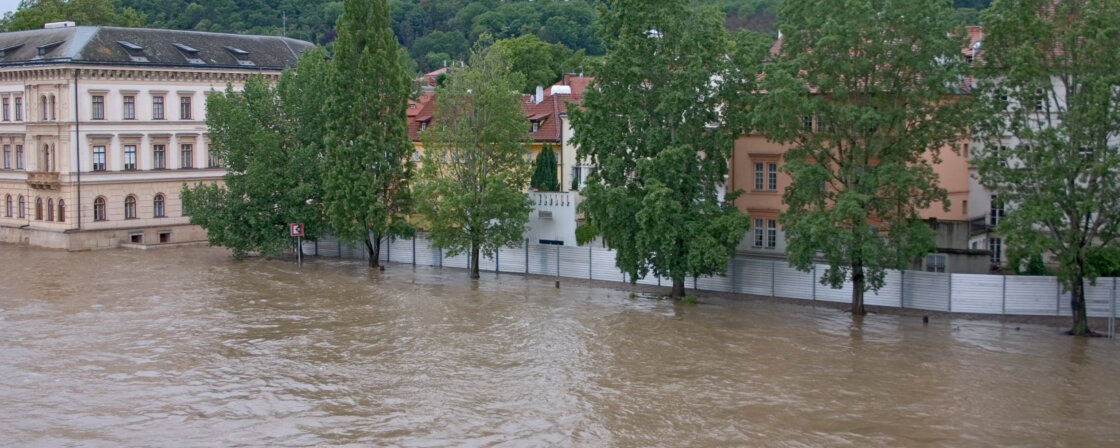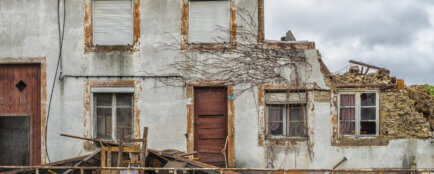Property insurance vs. home insurance
The most common type of property (building)insurance covers damage to the building itself, whether it is a family home, a cottage, a garage or even an apartment. It protects against floods, fires, vandalism or various natural disasters, for example. Of course, the protection does not consist in the fact that big water or fire cannot fall on them, but if this happens and the house lies in ashes, you will recover a significant part of the damage caused.
The second most common type of insurance that covers property is home insurance. However, this protects the movable items inside the home or apartment. This typically includes furniture, electronics, and personal belongings. This insurance covers damage caused by theft or property damage, for example.
Third party liability insurance is also often associated with these types of policies.
When choosing insurance, it is important to consider the value of the property and furnishings, the risks associated with the location (e.g. flood zones) and the specific needs of the owner. Insurance companies offer various packages and extensions, such as natural catastrophe insurance or rental property liability insurance.
Choosing the right insurance ensures peace of mind and protection for your investment. But it is not enough to choose an insurance company, take out a policy and just pay for years and decades to come. You also need to regularly review and update your policies to match current values and needs.
Are you solving a similar problem?
Are you buying or selling a property?
We provide a complete legal service related to the purchase or sale of real estate, including a reservation contract and escrow of the purchase price. We can also help with land registry and taxes. We will handle it quickly and flawlessly so you don’t have to worry about a thing. You can pay after the service has been provided.
I want to consult
- When you order, you know what you will get and how much it will cost.
- We handle everything online or in person at one of our 6 offices.
- We handle 8 out of 10 requests within 2 working days.
- We have specialists for every field of law.
I’m taking out an insurance policy – what to look out for?
There are several key aspects to pay attention to when taking out an insurance policy. First, read the whole contract thoroughly , including any small print addendums. These usually contain exclusions that change the situation. Understanding exactly what is covered and what falls under exclusions is essential. You may believe that your home is fully protected (at least financially) against fire, but the exclusion on page nine of the policy covers situations where the insurer will not pay anything because the fire originated from your kettle, your minor child or a storage stove that does not meet the latest technical specification. It is also important to check the limit of cover to ensure it matches the value of your property and possessions.
Deductibles define your financial liability in the event of a loss, so you need to pay special attention to them. Find out how and within what timeframe you need to report the damage to the insurance company. Be sure to inquire about any additional fees and automatic renewal terms.
Check the options and rules for changes to the insurance policy. Finally, do not neglect the reputation and financial stability of the insurance company, which guarantee its reliability and ability to meet its obligations in the event of claims. Careful selection of the insurance policy and the insurance company can save you many problems in the future. When insuring a property, it is also worth checking the property insurance experience of other customers.
What can I insure?
In the case of property, a wide range of assets can be insured. As well as the house itself , you can also insure greenhouses, wells, land, gardens, sheds, various outhouses and other fixtures and fittings of the property. However, it’s a good idea to keep everything in mind and specifically mention it in the policy so that you won’t be unpleasantly surprised in the event of a claim. It is important to consult with your insurance company about your coverage options to ensure complete protection for your property.
Tip for article
Property insurance can be recommended at any time and in any situation. Such a proclamation could be used to conclude this topic. However, we have focused our article on specific situations such as insuring someone else’s property, insuring a home when arranging a mortgage, and insuring a home that is yet to be built.
What should I do in the event of an insurance claim?
When an insured event occurs (such as a fire, flood or windstorm), the first priority is obviously to ensure the safety of all persons and to minimise further damage. Document the extent of the damage as thoroughly as possible, which will facilitate your communication with the insurance company. Take pictures of everything and make an inventory of what is destroyed or lost.
Contact the insurance company as soon as possible to report and accurately describe the damage. At this stage, it is crucial to follow all instructions from the insurance company, especially regarding repairs and claim procedures. Do not proceed with any repairs until the insurance company has approved it. It is also important to retain all documents relating to the claim for any claims handling. Following the correct procedure can speed up the claims process and minimize complications.
It is important to follow the insurance company’s instructions and meet all deadlines and requirements for reporting the claim.
Property Insurance Vindication
In some cases (typically involving a mortgage) there will be what is known as an insurance claim vindication or property insurance vindication. This is actually a restriction on the right of disposition which effectively means that the insurance claim or other insurance benefit will not be paid to the insured party, but to the insured party’s creditor. Thus, in the case of a property, if the house burns down, the money from the policy will belong to the lender (the lender could be a bank, for example).
Tip for article
The price of property insurance is based on a number of factors that reflect the risks associated with a particular property. Which of these are fixed and when can you influence the price of the policy yourself? That’s what we look at in our next article.
What mistakes to avoid when taking out a policy?
When taking out a property insurance policy, it is essential to study the policy thoroughly. It is important that you fully understand all the terms and conditions of the cover, including becoming thoroughly familiar with the exclusions from cover.
It is also important to properly assess the value of your property. Underestimating the value of your property can lead to underinsurance. In this case, your policy will not cover the full value of the loss in the event of a claim. Conversely, overestimating the value of your property leads to overinsurance, which may mean you pay higher premiums than necessary.
It is also important to update your insurance policy regularly in the event of any changes, such as home renovations or the addition of new property. These changes can affect the value of your property and therefore the amount of insurance cover.
Finally, be sure to take into account any risks associated with your property. Each property is unique and may require specific insurance coverage. Carefully consider all potential risk factors to ensure that your policy will adequately address all possible scenarios.
Avoiding the mistakes mentioned above can help ensure that your property is properly insured and protected from unexpected events.
Tip for article
Do you want to change insurance companies because of unsatisfactory conditions? Or have you discovered an offer that is much better? Read on to find out when you can terminate your insurance policy.
Summary
Property insurance protects a building against damage caused by fire, flood or vandalism, while home insurance covers the movable items inside, such as furniture and electronics.
When arranging insurance, it is crucial to study the contract thoroughly , especially the exclusions, set the correct insurable value of the property and furnishings, and check the coverage limits and deductibles. Insurance may also cover outbuildings such as sheds or greenhouses if they are specifically mentioned in the contract.
In the event of a claim, you must document the damage, contact the insurance company immediately and follow its instructions.
Common mistakes include underinsurance (low sum insured), overinsurance (unnecessarily high premiums) and not updating the policy regularly after renovations or changes in the value of the property.




